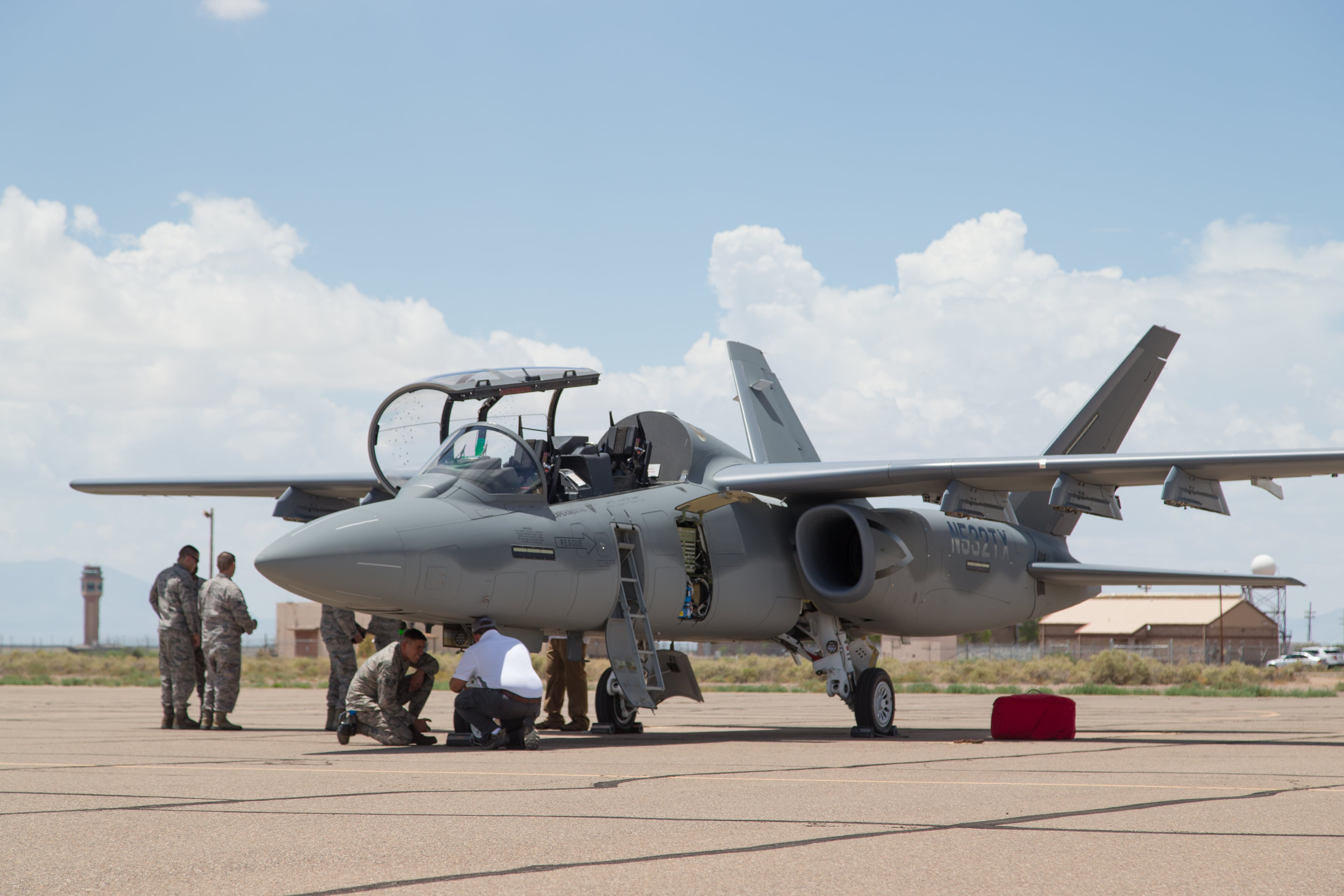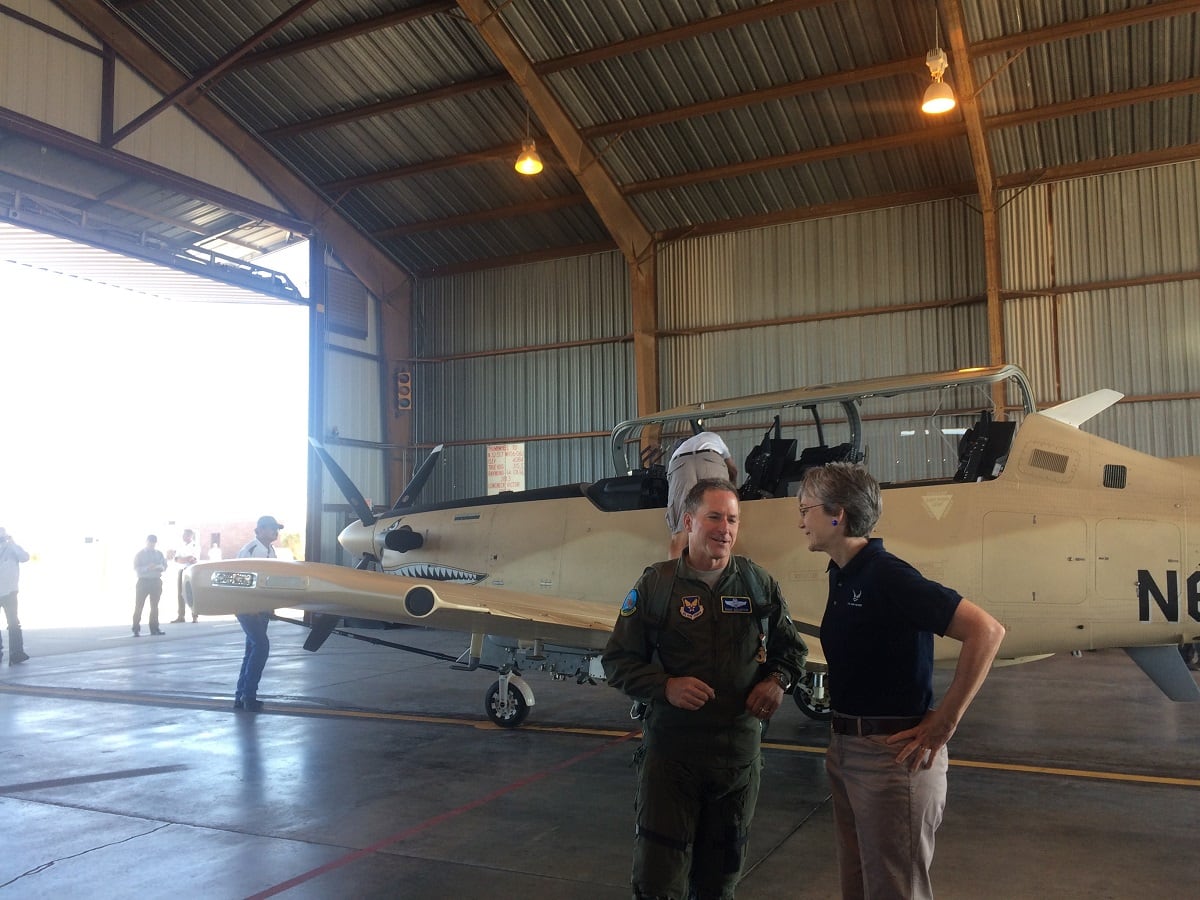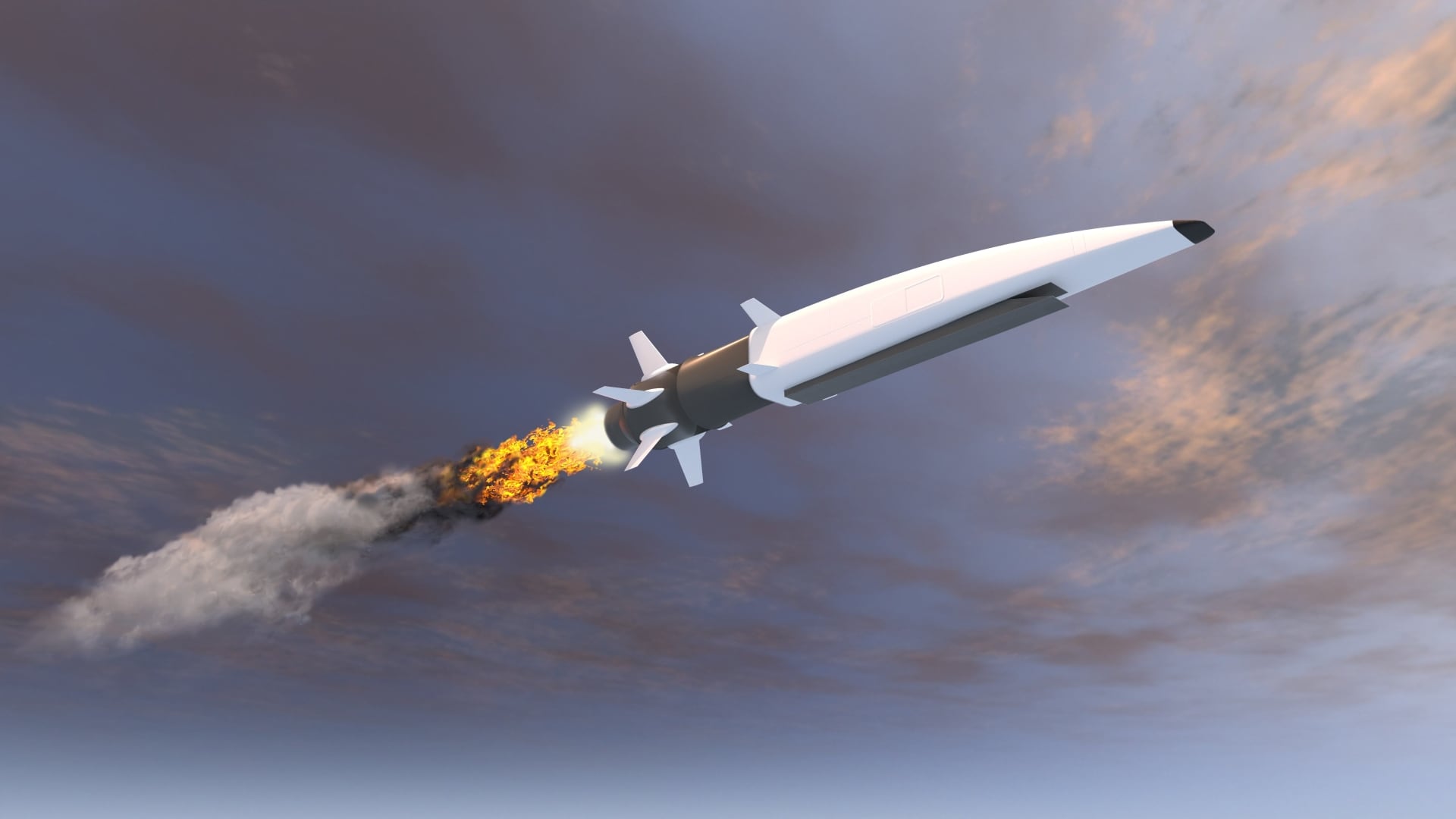WASHINGTON — The U.S. Air Force will procure a handful of A-29 Super Tucano planes from Sierra Nevada Corp. and AT-6 Wolverines from Textron to continue light-attack demonstrations, the service’s top general said Wednesday.
That purchase provides a modest, but much-needed show of confidence for the two companies, which have invested internal funding over the past two years on the Air Force’s light-attack experiment and are still hoping the service moves forward with a bigger buy of light-attack aircraft.
The Air Force plans to place small detachments of AT-6 and A-29 turboprop planes at Nellis Air Force Base — the Nevada-based installation that hosts Red Flag and other training exercises — and Hurlburt Field, Florida, where Air Force Special Operations Command is based, Chief of Staff Gen. Dave Goldfein said during a Senate Appropriations Committee hearing.
Air Force spokeswoman Ann Stefanek told Defense News that the service would likely buy two or three of each aircraft, but Goldfein told lawmakers at the hearing that the exact numbers would be dependent on the price tag of the planes.
“The United States Marine Corps has already said they’re joining us,” Goldfein said. “We’re going to invite allies and partners, and with the authorities you’ve given us now that we own those prototypes, we will continue to experiment to build the interoperable network that we’ve already advanced.”
RELATED

Funding for the AT-6 and A-29 will come from leftover money from previous years’ budgets. Congress has appropriated about $200 million for the experimentation campaign so far, Stefanek said. Of that, about $60 million in fiscal 2018 research and development funds and $100 million in fiscal 2019 procurement funds still remain, and will be used by the service to finance the AT-6 and A-29 buy.
Although most of the light-attack experiment centered around turboprop planes, the Air Force is interested in expanding the exercise to include drones, rotorcraft and turbojet planes.
The FY20 budget request calls for $35 million to continue the light-attack experiment. Part of those funds would go toward a market analysis of global demand for light-attack platforms, Air Force Secretary Heather Wilson said.
RELATED

Then the service would go through a similar process as it did with earlier portions of the experiment, soliciting companies to offer off-the-shelf technologies and using special, congressionally approved authorities to partner with them for demonstrations.
The idea is that the Air Force will have solidified exactly what light-attack capabilities it needs sometime around 2022 through 2024, when it plans to procure such assets, Goldfein said.
However, some lawmakers criticized Air Force leadership for what they perceived as its sluggishness in moving to the procurement phase of the experiment.
Sen. Jerry Moran, R-Kan., said that when he saw a recent report by the Pentagon’s weapons testing agency that cited a plan for the Air Force to buy upward of 300 light-attack aircraft, he considered it as proof that the rapid acquisition process was working. However, recent statements by Air Force leaders on the future of the program made him concerned that the service was abandoning light-attack aircraft procurement, he noted.
“It seems to me that there is a schizophrenia in the Air Force about light attack. The messages are mixed,” Moran said.
Goldfein responded that the service simply didn’t have enough information to commit to a program of record at this point, and wanted to do more work exploring the requirements of partner nations and establishing an interoperable network with them before making a final decision.
“When you compare what we’ve done compared to a normal timeline for acquisition that would take five to 10 years, we’re two years into this,” he said.
Valerie Insinna is Defense News' air warfare reporter. She previously worked the Navy/congressional beats for Defense Daily, which followed almost three years as a staff writer for National Defense Magazine. Prior to that, she worked as an editorial assistant for the Tokyo Shimbun’s Washington bureau.








